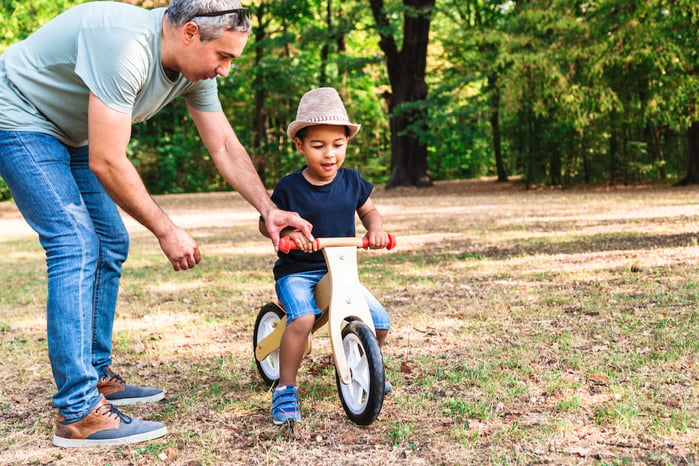
Parenting is tough enough as it is – but parenting after a cancer diagnosis can present a whole new set of unique challenges. Even after cancer treatment has ended and the cancer patient becomes a cancer survivor, families realize that it takes time to pick up the pieces and create a new normal that works for everyone. This can often lead to disappointment, worry, and frustration for both parents and children.
How a Parent’s Cancer Affects Children
Children are often the most vulnerable when it comes to feeling the impact a parent’s cancer has on the family. Even very young children can sense when something is wrong, causing them to feel a flood of emotions. Some children may feel anger or resentment toward the parent who can’t do as much as they could before or has to be away from home more frequently because of treatment. Others may feel deep sadness and concern. Some may even fear that the cancer may come back.
While all family members are learning how to adjust to life after cancer, children usually aren’t capable of doing it on their own and may act differently than usual because of it. Some signs your child may be in need of extra support could include:
- Feeling sad all the time
- May become extra clingy or needy
- Frequent crying
- Easily angered
- Withdraws or isolates himself or herself
- Declining school performance
- Changes in appetite
- Low energy
- Shows less interest in activities
- Difficulties concentrating
- Trouble managing emotions
- Has trouble sleeping
What You Can Do as a Parent
There are a couple of options that a parent can take to help their children after having experienced a parents cancer diagnosis, such as:
1. Help Your Children Feel Safe
Stressful situations, such as a cancer diagnosis, can make children feel insecure about what the future holds, so important that you find ways to help your children feel safe. Some ways this can be done could include:
- Expressing your love through words and hugs
- Comforting them and making them feel valuable
- Reassuring them that they will be taken care of and will not be forgotten
- Encouraging them that it’s okay to have fun
- Letting them know that cancer is not contagious
- Reminding them that their other parent and relatives are healthy
- Continuing the discipline and limit-setting they are used to
2. Maintain Open and Honest Communication
The key to minimizing the distress in your children is to maintain open communication. Help the children in your family understand that just because you are cancer-free, doesn’t necessarily mean that you will have the same amount of energy you used to before treatment and that you may still need to depend on others during this time.
Be open about what you can and can’t do. Let your child know that these changes are stressful for everyone and that the family is strong and will get through this together.
When parenting children after cancer, remember that it is important to:
- Be honest with them. The truth about what you’re going through is probably better than the worries they have built up in their mind.
- Speak as directly and openly as possible without being scary. Choose words that can be understood based upon the age of your child. Don’t make assumptions, which could lead to disappointment if things don’t turn out as planned.
- Keep them informed about your cancer and involved in your recovery. Sharing information shows them that you care about their feelings.
- Spend extra time with them on days you feel well.
- Have frequent family discussions to deal with emotions, brainstorm ways to make family life feel more normal, or to discuss any role changes that are sometimes necessary.
3. Find a Third-Party With Experience in Managing Emotions After a Parent Has Cancer
With your permission, other family members should also be open with your children about your cancer and its treatment.
It is not uncommon for children to talk to someone or participate in a support program for other children whose parents are cancer survivors. Sometimes, children find the support they need by talking with people such as friends, other family members, teachers, coaches, and spiritual leaders. Other times, however, children may choose to get additional support by taking advantage of programs and services that are available for families touched by cancer. One such organization is Children’s Lives Include Moments of Bravery (CLIMB), which was developed specifically to support the emotional needs of children with a parent or caregiver who has cancer.
If any of the above efforts fail to provide the support needed, professional counseling for a child, or child and parent together, may be a good idea. Learn more about how family counseling helps the healing process.
Remember, a cancer diagnosis is not only tough on the patient but the entire family, as well. But by talking openly, managing emotions, adjusting to changes, and staying positive, you can get through this as a family.


